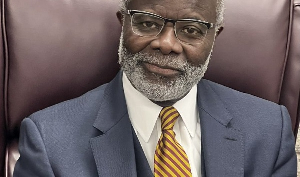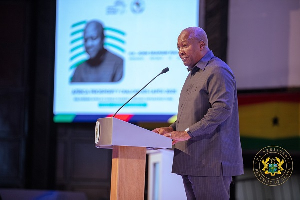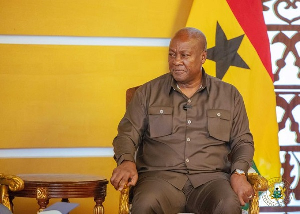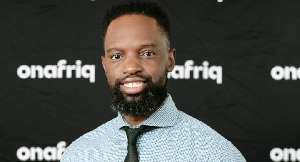Accra, Aug. 22, GNA-Ghana on Wednesday launched a National Orientation Programme with a plea to her citizens to reverse the notion that everything that was foreign was better than what was produced locally.
Mrs. Oboshie Sai-Cofie, Minister of Information and National Orientation said, "We need to portray ourselves as an attractive investment destination and sell Ghana to Ghanaians and to foreign investors."
Vice President Alhaji Aliu Mahama joined the Minister to launch the programme unveiled a mascot of a man and a woman wearing cloth made with the colours of the Ghana flag.
The programme was aimed at educating Ghanaians more on the need to re-orient them to be more patriotic and to see themselves as belonging to one nation and always putting the interest of the nation first. Mrs Sai-Cofie said; "National Orientation as the name suggests is more of process of transforming and formulating a culture that challenges each Ghanaian to do his or he best for himself and for his country.
"National Orientation does not target one age group, ethnic group, political party or religious assembly. Nor is it on meant for our time. We anticipate a gradual re-assessment and re-positioning of Ghana in the thinking and the behaviour of the Ghanaian, hopefully in the long run we will have a national pride of real and lasting value to bequeath to this country."
She said the programme was not an ethical prescription to be memorized and recited at the click of a finger by Ghanaians. Mrs. Sai-Cofie explained the concept "simply seeks to rekindle what I believe each of us already knows and many of us already abide by. It is a dynamic and evolving programme that will be strengthened by the inputs that we expect to receive from every section of our nation." "We have in our culture as Ghanaians unchanging and unchangeable ethical and moral precepts that all our people believe in." Describing what she called the pillars of national orientation, Mrs. Sai-Cofie said the programme expected that the moral and ethical ideas introduced in the programme would be accepted into our work ethics, daily lives and prayers.
The pillars are: Proud to be Ghanaian, Patriotism and a Spirit of Ghana First, Can do it- attitude, Productivity and Accountability, Dedication and Discipline.
She urged Ghanaians to identify with the pillars and absorb the programme involved in national orientation.
"There are other areas in which we should show our special pride and togetherness as Ghanaians. We can learn to focus on and respect the symbols that unite us as a nation such as the National Flag, National Anthem, Coat of Arms, the National Pledge and the National Currency and attach importance to them."
"In our everyday life, we should be courteous to one another. We should respect time and its values. We should learn to take pride in local dress and cuisine," Mrs Sai-Cofie said.
She said the kind of Ghanaian the programme envisaged was one who holds dear to his or her positive cultural and traditional values. The Minister noted, "if we are to attain our goals as Ghanaians we should set out to change out attitude to work.
She mentioned symposia, seminars, regulations and legislation, animation, puppetry, street theatres, drama and documentaries as tools the Ministry would use to achieve the goals.
Mrs. Sai-Cofie further called the media to take a closer look at the language and content of their publications and endeavour to give greater attention to the promotion of Ghanaian ethical and cultural values. Mr. Frank Agyekum, Deputy Minister of Information and National Orientation, drew attention to the fact that there were things that were done wrongly in the Ghanaian society that needed collective efforts to change.
He said there was the need for people to observe hygienic and toiletry rules in public. Professor George Payin Hagan, Chairman of the National Commission on Culture, who chaired the function expressed worry about the colonial mentality which made everything Ghanaian wrong or bad and everything foreign good and right. Calling for the need for mental liberation among Ghanaians Prof. Hagan stressed that it was very sad to have a people who doubted their own capabilities and look up to the colonial masters to tell them what to do.
He said there was the need to go beyond the wearing of traditional dresses and promoting local dishes to give a value to "Ghanaianness." "Be involved in creating that sense of a proud Ghanaian," he pleaded.
The launch, which was largely attended by heads and staff of Ministries, Departments and Agencies, as well as pupils women groups and traditional leaders had the audience treated to a fashion show by children and acrobatic displays.
General News of Wednesday, 22 August 2007
Source: GNA
















